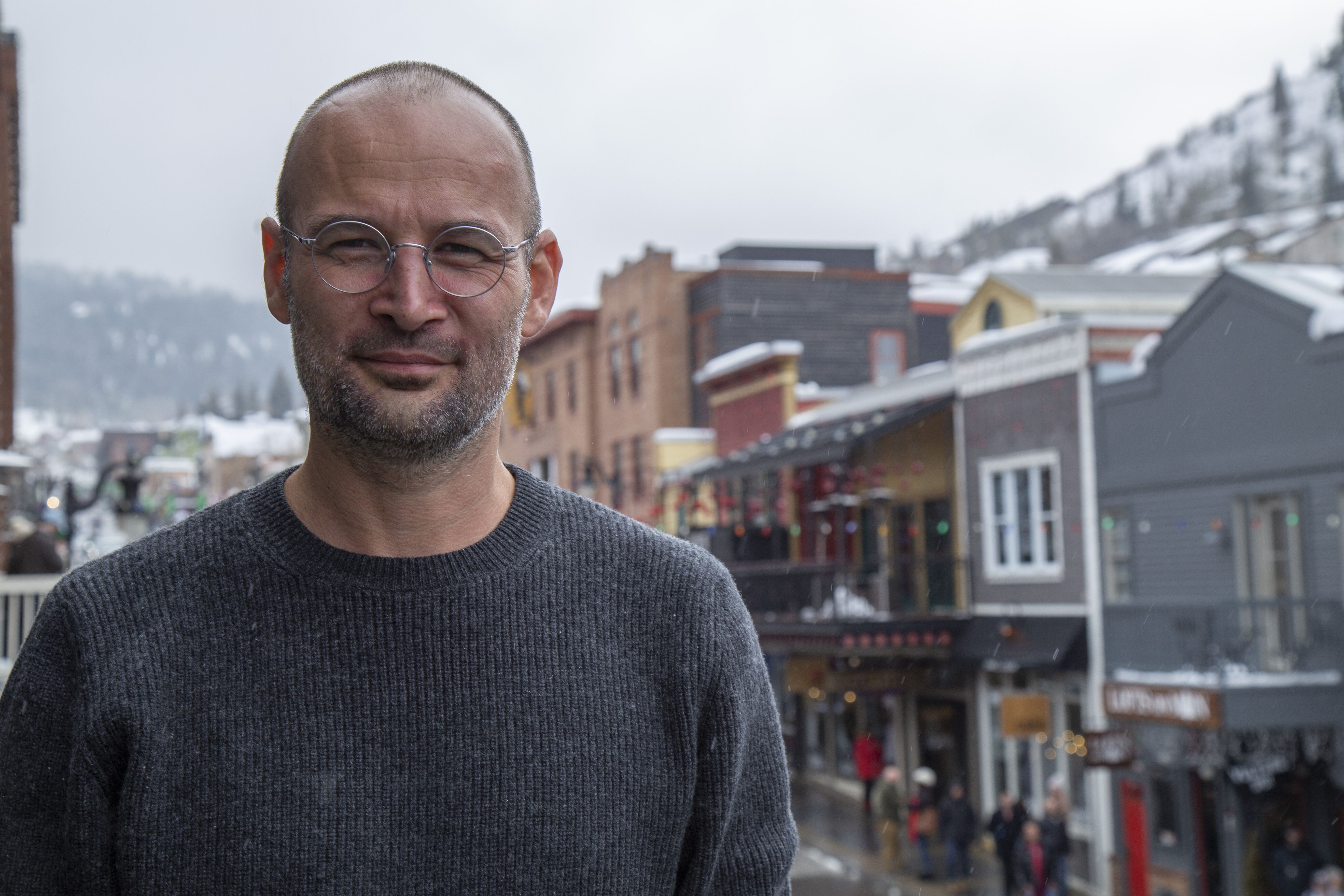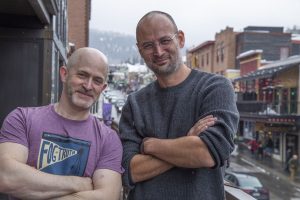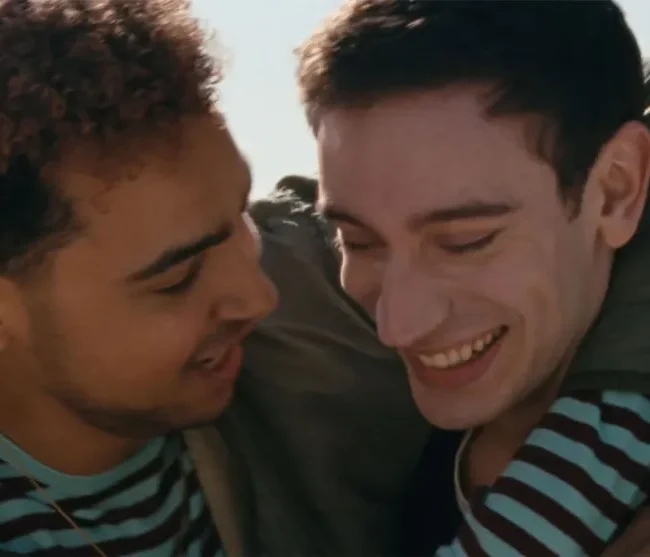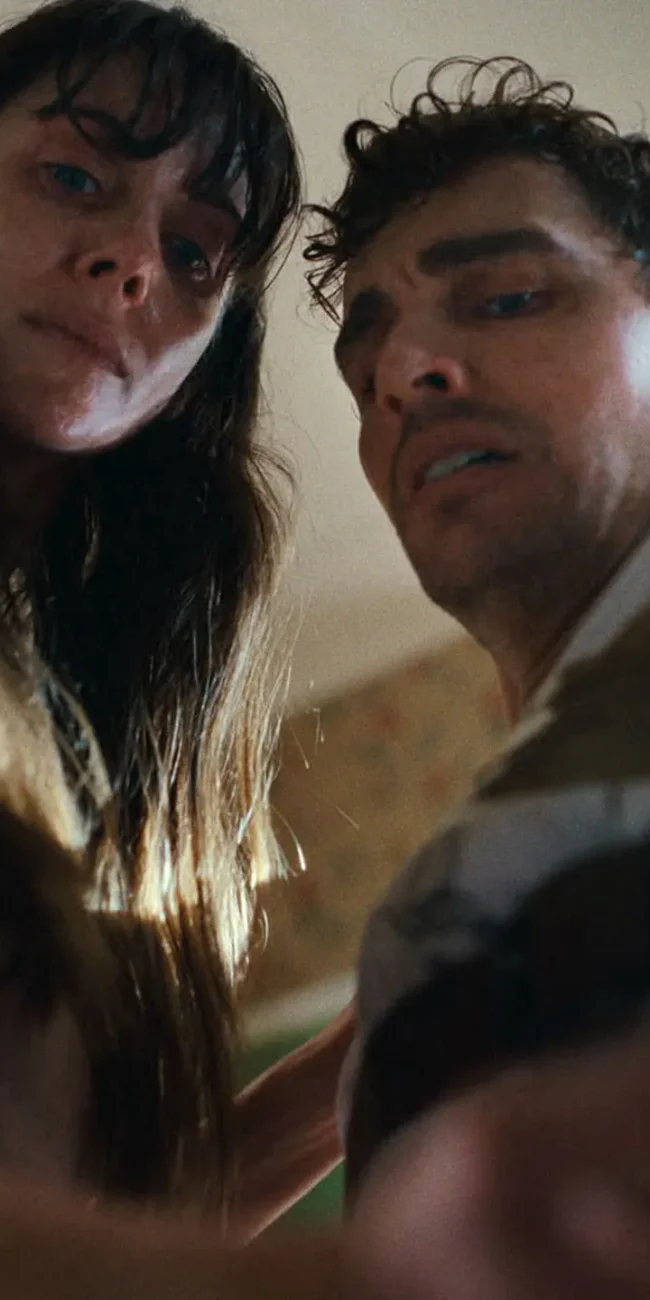Interview: A Conversation With Alexander Nanau (COLLECTIVE)

I met with German/Romanian director Alexander Nanau (Toto and His Sisters) on Friday, January 24, 2020, at the 2020 Sundance Film Festival, to discuss his powerful documentary Collective (a film I reviewed out of the 2019 Toronto International Film Festival), which follows the aftermath of the devastating fire at the Colectiv nightclub in 2015, in Bucharest. Not only were the casualties and injuries from the actual conflagration significant, but many victims later died from the infections that resulted from improper hospital care. Romania, it seemed, despite official protestations to the contrary, was unprepared to handle such a calamity. The subsequent national outrage led to the resignation of the government and the installation of a temporary one put in power to run the country while it prepared for new elections. During all this, Nanau is there with his camera, embedded with the journalist Cătălin Tolontan, whose investigations uncovered unspeakable corruption, as well as with the new health minister, Vlad Voiculescu. The documentary is a triumph of both storytelling and access. Here is a condensed digest of our conversation, edited for length and clarity. At times, I have adjusted Nanau’s otherwise fine English to make it fit American idioms.
Hammer to Nail: So, you’re Romanian, but you’ve spent most of your life in Germany, right?
Alexander Nanau: Right. I’m actually half-Romanian, half-German, so I’m part of the German minority in Romania. My mother is German, and my father Romanian.
HtN: I didn’t realize there was an ethnic minority of Germans in Romania.
AN: Oh, a huge one. If you traveled to Transylvania, it looks like Germany in 1800.
HtN: Interesting. But then, in 2015 you find yourself back in Romania when this horrific event – the Colectiv nightclub fire – happens. How quickly after this tragedy began to unfold did you realize you wanted to make a film about it?
AN: Actually, pretty fast, because the street movements that took place felt like a turning point in Romanian society. It was the first time since the revolution in 1989 that so many people took to the street. And so it was clear that it would be interesting to do something to understand what’s really happening in this very young democracy. But I didn’t know where to start. So it was only at the end of November that I was in Berlin with my co-producer from HBO Europe, Hanka Kastelicová, and we said, “OK, we have to do something. Let’s put a team together to start researching different directions and see if we can find characters which I could film in an observational manner.” Because that’s the way I do documentary films.
And so we did that. And at the same time these patients started dying in hospitals. And it was clear that something was very fishy. And the journalists around Cătălin Tolontan started to investigate the healthcare system. So we thought maybe the press would be a good point to start if we could have characters like them and following them into investigations, in order to understand a bit how the power relates to the people, and how the mechanism of society’s really working.
HtN: Could you talk about negotiating access to these amazing characters? Because you get quite intimately embedded. You have Cătălin Tolontan, the journalist; you have Tedy Ursuleanu, the burn victim; you have Narcis Hogea, the father of a victim; and then of course, you have Vlad Voiculescu, the extremely young, brand-new Minister of Health. How did you negotiate access to them? You’re right there with your camera.
AN: Right. So, when we started, we addressed Cătălin Tolontan and his team. And at first, they denied any collaborations. They said, “It’s impossible, because in a newsroom we have to protect the journalists, first of all, and we have to protect our information and also whistleblowers.” So, what I presented to him, that I would like to follow him for a period of time if he has an investigation, seemed to him not realistic. But I think that when he saw that our own team investigated very deeply and we really got good information and got access to people that trusted us, doctors from hospitals, I think we gained his trust.
And so one day he called me and said, “Listen, actually we’ve been working for several months on something and I think it’s quite an important investigation. Come and let’s try to film our steps into this investigation.” And that’s how we started. And shortly after we started things, it all evolved so fast that we were all in it together in a way, following them in every step.
HtN: So, one can make documentaries in all sorts of ways, and we’re in an age of hybridity where people commonly do stylized reenactments and other such things. What draws you to this purely observational way of making a film, in particular?

Our Chris Reed and filmmaker Alexander Nanau
AN: It’s a very personal thing about how I see documentary filmmaking and why I chose it, and I chose it because I want to learn things. It has to become so intimate that I can really understand the lives of others and understand what drives other people. And so, for me, it’s a way of learning. For sure, you can get very intimate interviews; you can get a lot authentic emotions in interviews. But when you follow people for a year in their work or in their life, you morph in a way into their life. And I find that my job as a storyteller is then to really compress my own experience during that year and pass it on to the viewers. So, I think my film is good when I have managed to let the viewer in that one and a half, two hours, live the same way I lived with these people, and really have a cinematic experience in terms of seeing the world through someone else’s eyes.
HtN: Right. It’s good to hear that philosophy. So, were there any restrictions on filmmaking, or were there any moments where you might’ve even felt as if you were being threatened in the way the journalists are threatened for uncovering this material? Because you are basically another level of journalist uncovering corruption.
AN: Yes and no. I mean, basically we’re just following their work. We had a very clear deal that we can film anything and everything. When whistleblowers came in, we had to explain to them what we’re doing and if they accepted, fine, and if not, then we’d not be there. And then part of the deal was that before we released the film, we would show what we’ve done to the whistleblower so that they could make their final decision if they wanted to go public once we’d finished the film.
So, in a way, we never knew if we would be able to publish what we were editing. And there were also situations where whistleblowers didn’t like to be filmed, but luckily those that are in the film are in the film because they chose in the end to be part of this project. And I think there was one situation where Cătălin Tolontan is on the phone with a whistleblower, and I had to cut out the part where you can really identify who was on the phone.
HtN: Why do you think it takes a journalist from a sports newspaper to uncover this scandal? I mean, of all the people to do it, why Cătălin Tolontan?
AN: So, Cătălin Tolontan and his team actually have been doing investigations for 15 to 20 years. And it’s true, they’re sports journalists, and they started investigations in the sport world, and they became quite famous in Romania because they brought down two sports ministers for corruption, and these ministers had to go to jail. So, when Colectiv happened, and because it was this national trauma, they decided to move their attention towards authorities, because there was this mass manipulation where they said they could treat all burn patients, and it was clear in the end that it was a big lie. And so they decided that it’s their duty, in a way. And what was even good, I think, for the investigations, was that actually in the health-care system and in the hospitals, nobody saw them as a big threat. They thought like, “Oh, OK, good. These are just sports journalists.” And that was to their advantage.
HtN: Yes, it’s always good to work with low expectations. So, your film ends on a somewhat sour note of a return to power of the corrupt party that enabled this tragedy in the first place. How is Romania now, politically?
AN: So, the film ends when the Social Democrats, who are actually the former Communist Party – and corruption is in their DNA – come back into power. And they were in power for three and a half years, which was a very traumatic time for Romania because they really, literally, tried to legalize corruption. They dismantled the judiciary system, as is happening in all Eastern European countries now, like in Hungary and the Czech Republic and Poland. But what was good was that it was so traumatic and so aggressive that finally a civil society was formed that was powerful because people took to the streets.
And if after Colectiv we were impressed by the numbers, like 30,000 people, then after this we had 350,000 people in the streets of Bucharest. And so it had a bad part, which also came with a brain drain of the country because many people left, so Romania was then, in terms of numbers, the first country after Syria in terms of people who emigrate, but those who stayed, young people that have private businesses, really formed a strong civil society that is even now building a hospital. And now we’re recovering because they managed to get rid of the Social Democrat government in parliament. And we will again have elections, and the last European election showed that in Romania people now go to vote. So we had a very high percentage of voters, finally.
HtN: Here’s hoping we see something similar after a particularly bad time now in the United States.
AN: It’s very similar and very comparable. And what’s interesting about our film is that when we started filming it at the end of 2015, beginning of 2016, in a way it was a local story. It was this populist government that lied about what they could do, but they could not do it and they killed people by their decisions. It resembles very much the decisions your administration is now taking.
But then, during the year we shot the film, 2016, all these things came in like Brexit, which was a huge trauma even for us in the whole of Europe, and the election of Trump. Then you had Brazil, with Bolsonaro. So the whole world suddenly turned upside down And with our story, we thought, “Wait a minute. That’s really … The story, it’s global. It’s not a Romanian story anymore.” And now we’re again in the same situation, like the year when we shot the film, we have elections. So we’ll see the outcome of it.
HtN: Well, all the more reason for people to go out and see your film when it gets released this spring.
AN: Yeah, I think people have to realize that we can’t expect our private life to be protected if we don’t participate in democracy. I know it’s the same … it’s always the systems people who are up there. But there’s good or there’s bad and less bad. And I think we have to, in a way, we have to go the route to vote for the less bad until we really can infiltrate the system with good people to turn things around.
HtN: Wise words. Well, thank you so much for talking to me, and thank you for making the film.
AN: Thank you very much.
– Christopher Llewellyn Reed (@ChrisReedFilm)
Like what you see here on Hammer to Nail? Why not pay just $1.00 per month via Patreon to help keep us going?












Pingback: Collective, il documentario sullo scandalo sanitario romeno verso gli Oscar - Consulente Tecnologico - Flavio Perrone